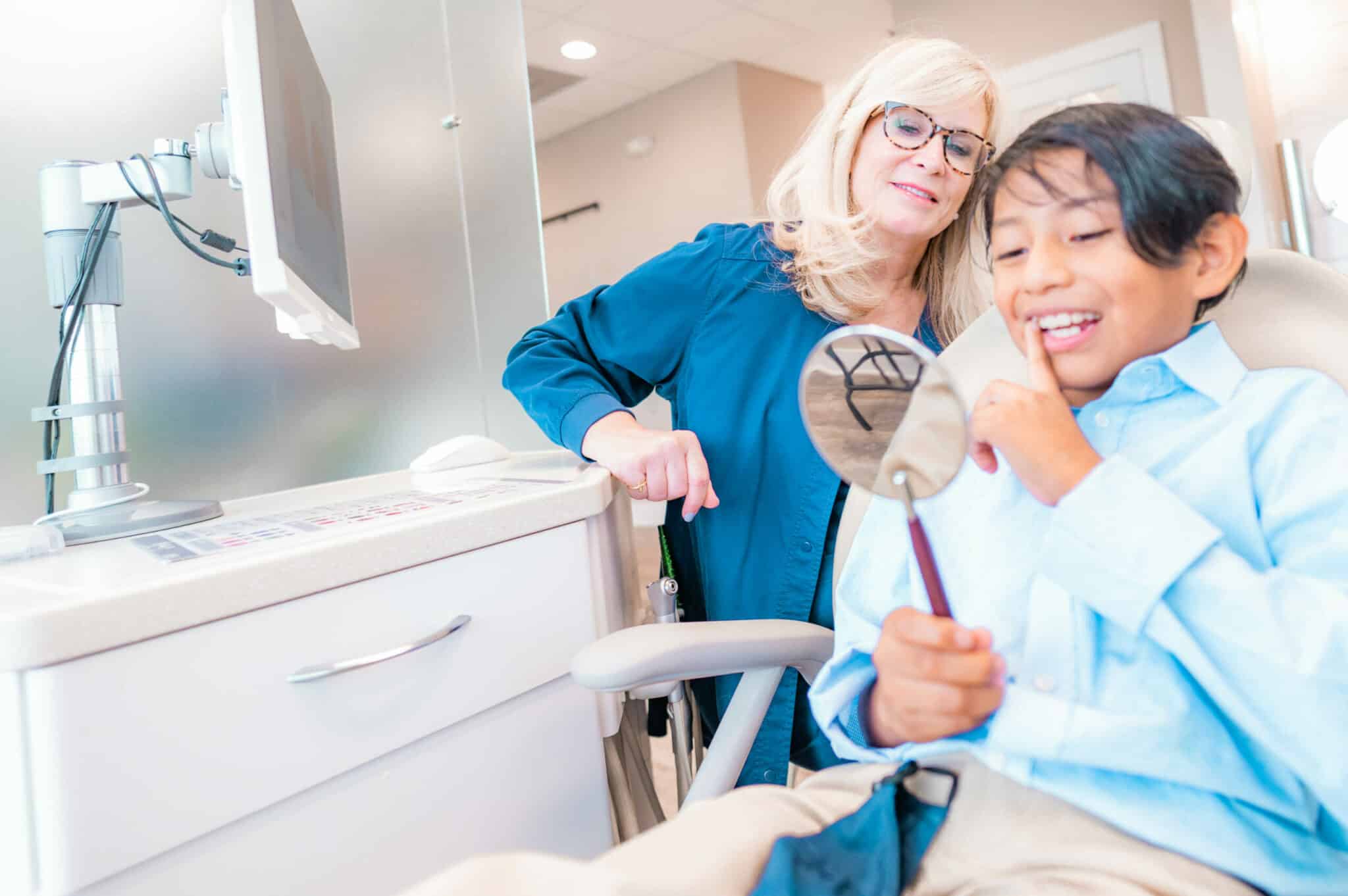Ouch! You just bit something hard and felt a little crunch. One look in the mirror confirms your fears — your tooth chipped! Now, what? How serious is a chipped tooth? Patients with braces have added concerns.
Chipping a tooth can be scary and sometimes painful, but it can be fixed, even if you wear braces. What causes a chipped tooth, how can you avoid chipping your teeth, and what do you do if you chip a tooth? We have the answers!
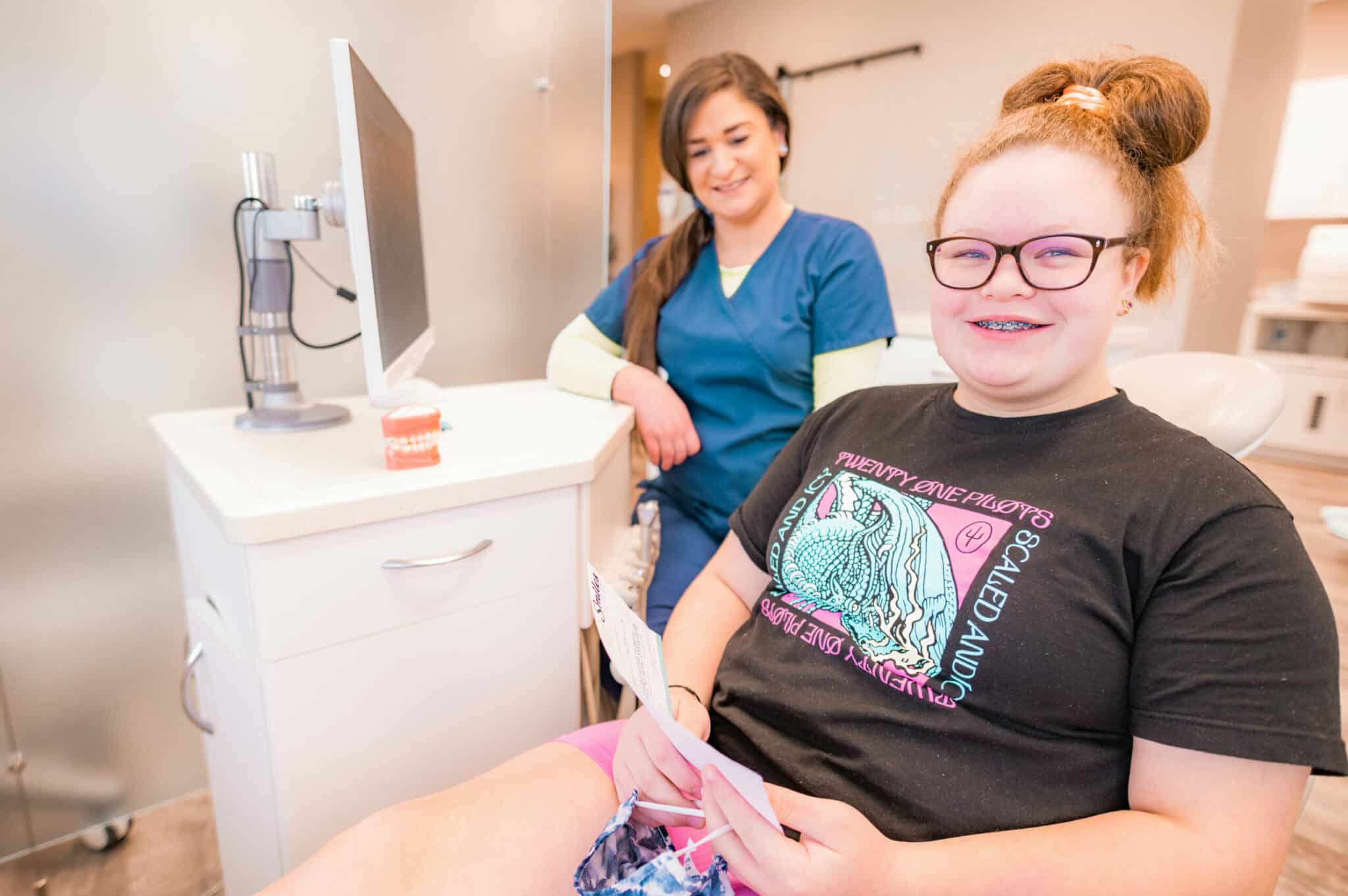
Causes of Your Chipped Tooth
A chipped tooth can happen at any time and in various ways. Several things can cause a chipped tooth, from hard foods to hard hits.
- Sports injuries commonly cause a chipped tooth, particularly a chipped front tooth. We encourage our patients to wear a mouthguard whenever they play sports, whether they have braces or not. A hit to the mouth can chip your tooth, loosen it, or cut the inside of your mouth on your braces. All three prospects are painful, so wear a mouthguard whenever you play sports!
- Bruxism, or grinding your teeth, can also cause chipped teeth. Often, teeth grinding happens when you’re asleep, so you don’t even realize you’re doing it. You may wake up with a sore jaw, joint or neck pain, or a chipped tooth.
- Hard candies or ice can also cause chipped teeth. Eating hard candies can damage your teeth, particularly if you don’t have good oral hygiene. Chomping on big chunks of ice can chip your tooth, too.
- Falls or accidents are another big cause of chipped teeth. Accidents happen, unfortunately, and can cause chipped teeth. While there isn’t much we can do to prevent most accidents, there are things that can be done to fix a chipped tooth. That includes taking care of damage to your teeth.
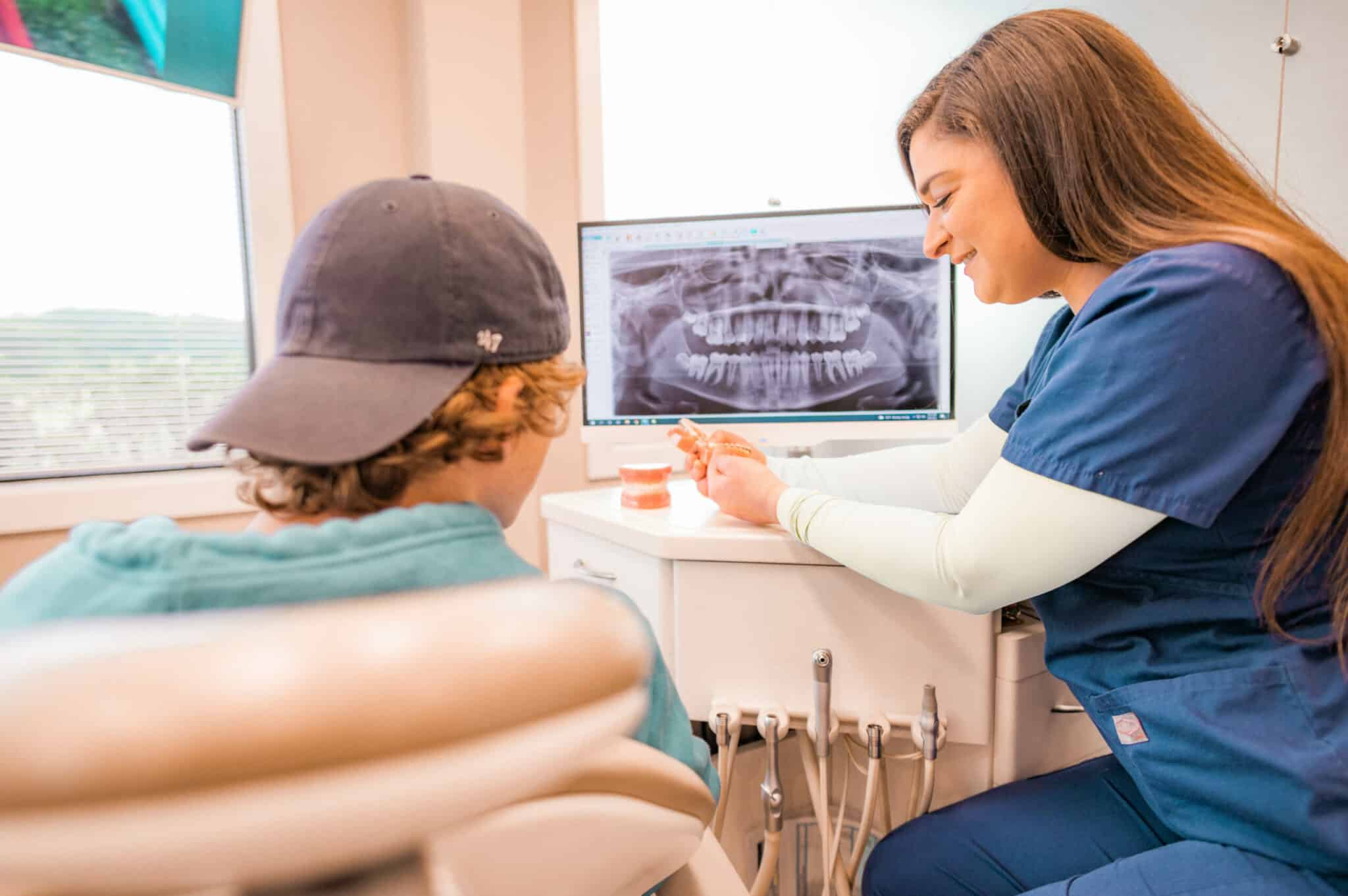
Signs You’ve Chipped Your Tooth
Have you chipped your tooth? It may not be obvious, as some chips are tiny and hard to spot. It can be even harder to tell if you wear braces. Look for signs that help determine if you have chipped a tooth.
- Tongue irritation. Your tongue may rub against the chip’s rough edge and become red, sore, or irritated. In addition to cutting your tongue, a sharp tooth may irritate the inside of your cheeks or lips.
- Tooth pain or tooth sensitivity. You may feel pain or sensitivity in the tooth when you bite. It may be mild, or it may be severe if the interior of the tooth is exposed.
- Gum redness. Your gums may be irritated around the chipped tooth.
You may have a chipped tooth if you experience one or more of these symptoms.
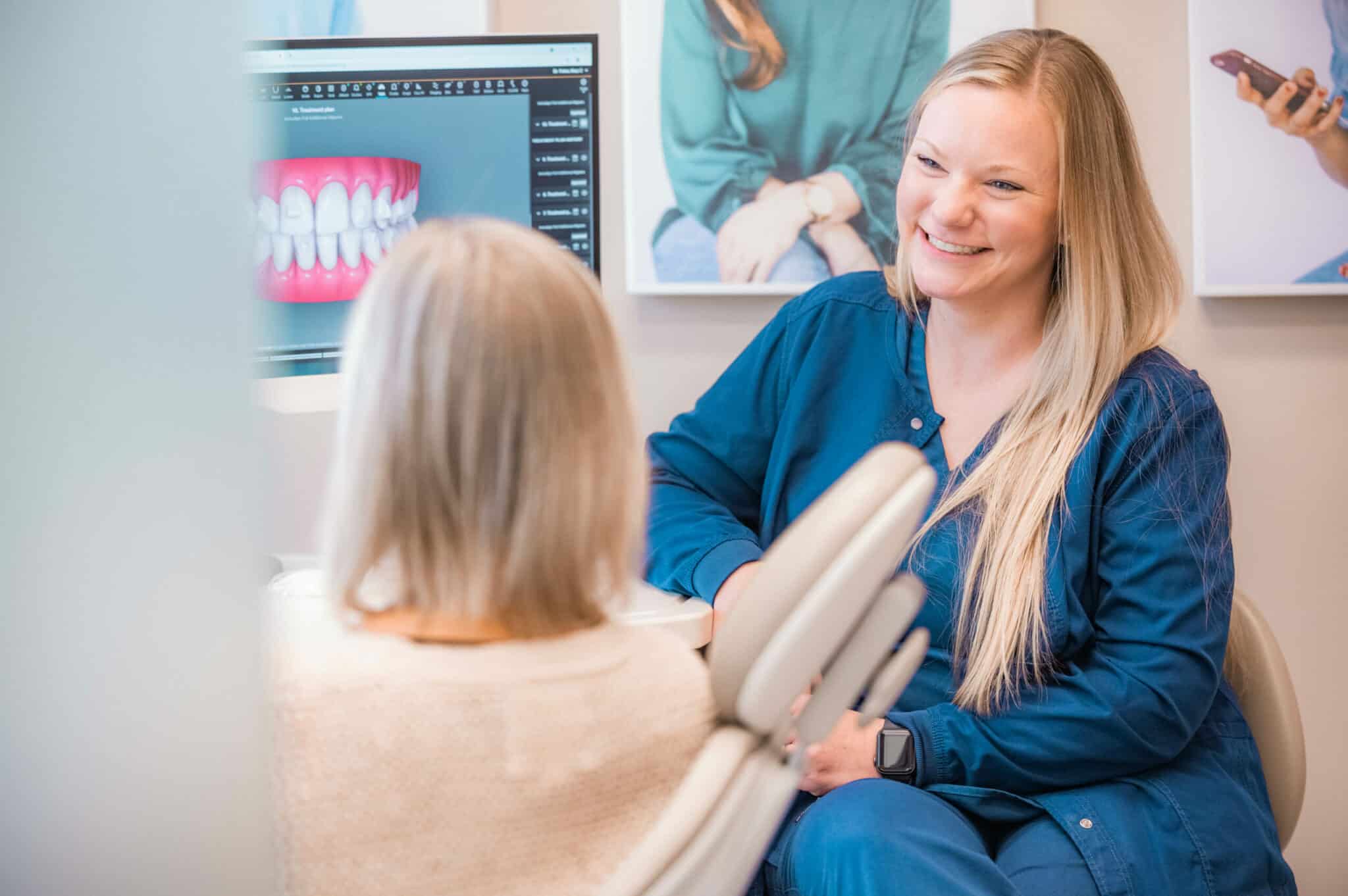
‘I Chipped a Tooth. What Do I Do?’
What do you do if you chip a tooth? What happens if the tooth falls out but is attached to braces? Chipping a tooth can cause a lot of concern and confusion, but don’t panic. You can take specific steps to ensure the best outcome, whether a quick fix with a little filling or a more detailed treatment.
If you don’t have braces, your first step is to call your dentist. The dentist will need a general idea of the extent of the damage, so they know what to expect when you come in for repair. A minor chip isn’t as serious as a deep chip that exposes the dentin or pulp — the internal, live parts of your tooth. Exposure of these parts could lead to infection and tooth loss, so it’s essential to take care of the tooth right away.
If you have braces, you need to call your orthodontist, too. Whatever chipped your tooth may have damaged your braces as well. Your orthodontist will need to check your braces to ensure you don’t have any loose brackets or broken wires. Your orthodontist can also work with your dentist to repair a tooth that was knocked loose but is still being held in your mouth by your braces.
Can braces break your teeth?
Nope! Braces may cause discomfort during adjustment but will not break your teeth. Wearing braces won’t increase your chances of chipping your tooth.
Can your teeth crack with braces?
Yes, but not because of the braces. They can crack with trauma, injury, bruxism, etc. Braces might offer protection but may also be damaged during trauma to your teeth. A chipped tooth likely won’t damage your braces, but what caused damage to your tooth could damage them. So if you chip your tooth, contact your dentist and orthodontist immediately.

If you chip a tooth, there are steps to lessen the pain and irritation and help preserve the tooth. You already know to call a dentist or orthodontist, but what do you do until you can get to the dentist or orthodontist?
Dental Wax on a Chipped Tooth
Often, a chipped tooth can cut your tongue or your cheek. If you have braces, you likely have the best tool available to combat that irritation — dental wax! Pinch off a pea-sized piece of wax, roll it between your thumb and index finger and mold it around the tooth. Keep the wax in place except when eating. Replace the wax after eating and keep it in place until you can see the dentist.
Dental Wax on Broken Braces
Dental wax can also protect your mouth from a broken wire or bracket. If your chipped tooth was caused by a sports injury, accident, or other trauma, there’s a chance you damaged your braces, too. Use your dental wax on the braces until you can see your orthodontist.
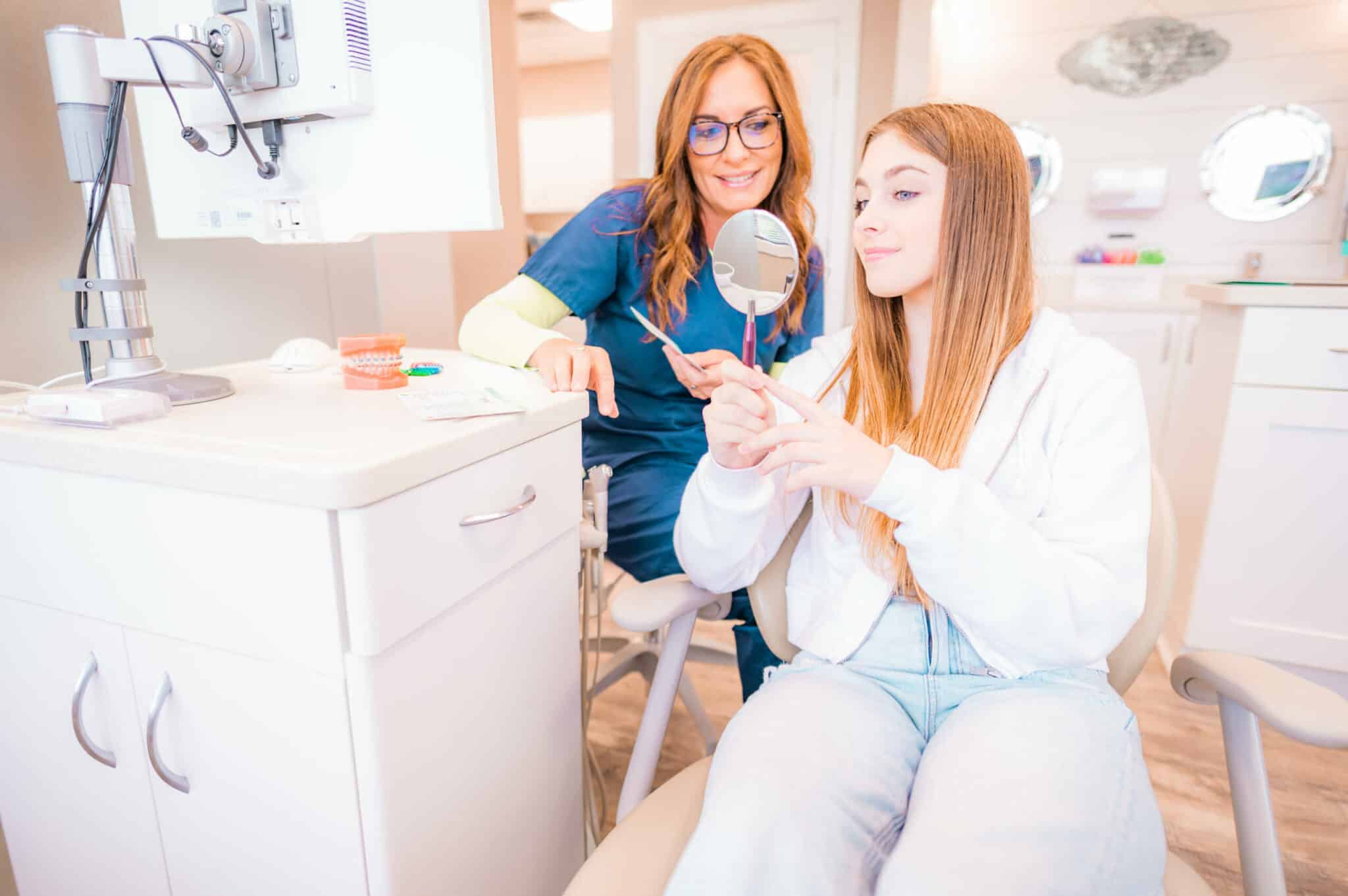
Prevent Infection in a Broken Tooth
An infection can take months to happen with a chipped or broken tooth, or it could be much sooner, depending on the extent of the damage. Until you see your dentist, here is how to prevent infection in a broken tooth.
- Keep the tooth clean. This may mean increasing the number of times you brush daily. It’s best to clean after every meal to ensure food doesn’t get lodged in the damaged tooth. It could accelerate the infection.
- Rinse your mouth. Rinse your mouth after food or drink if you are unable to brush. Use warm water if possible.
- Cover the tooth. Try covering the tooth with dental wax, especially if the dentin or pulp is exposed.
Once at the dentist, you may get a filling if the chip is to a molar or a dental bond if it’s a front tooth. The dental bond is a composite resin painted on the tooth and fills in the chip. If the chip is severe, you may get dental crowns or veneer to cover the tooth and make it look whole again.





